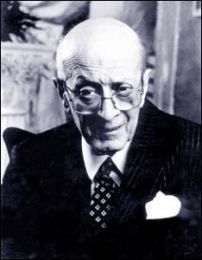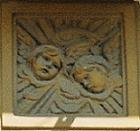 I remember to this day the moment I saw it around my grandmother’s neck, although I was a little kid at that time. It surprised me very much. It simply gave my grandmother an air of nobility. It was like it was casting a light upon her sun-burnt face and upon the garments that she would wear for festive occasions, taken out of the chest where she kept them. It was like she was no longer the humble peasant woman that she had been until then, but a grand lady who was getting ready to face the requirements of city life — more precisely, of a wedding that was about to happen in our family.
I remember to this day the moment I saw it around my grandmother’s neck, although I was a little kid at that time. It surprised me very much. It simply gave my grandmother an air of nobility. It was like it was casting a light upon her sun-burnt face and upon the garments that she would wear for festive occasions, taken out of the chest where she kept them. It was like she was no longer the humble peasant woman that she had been until then, but a grand lady who was getting ready to face the requirements of city life — more precisely, of a wedding that was about to happen in our family.
I followed my grandmother with my child eyes, trying to figure out how an ordinary piece of jewelry could change her so completely. Yet perhaps it wasn’t that ordinary after all. Or maybe my grandmother wasn’t. But from that day on, to me, she preserved the enchantment of that mysterious transformation, although it was a necklace that she would rarely wear, if at all.
I didn’t see her wear it later on any longer, as life carried me away from the events that my grandparents took part in, but I will always remember that wonderful ennoblement, with some of the thrill that Vermeer must have felt in his heart when he painted the “Girl with Pearl Earring”. The only jewel that my grandmother – now gone far away, in the country of the beyond – had, is now lying in a vintage box, as if peacefully waiting for its time, again. And for its Woman.
Laurentiu Dumitru






